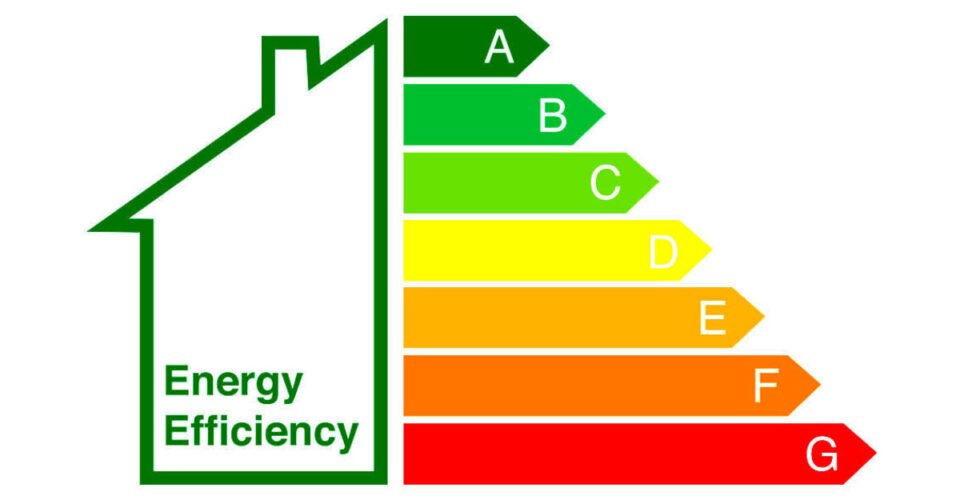In today’s environmentally conscious world, energy efficiency is becoming increasingly important. Whether it’s for residential or commercial properties, having an Energy Performance Certificate (EPC) is essential. An EPC provides information on a building’s energy efficiency, helping property owners and potential buyers or tenants make informed decisions.
Difference between Commercial EPC and Domestic EPC
Commercial EPC and Domestic EPC are two types of Energy Performance Certificates that assess and rate the energy efficiency of different types of properties in the UK. While they share the same purpose of providing information on energy performance, there are some key differences between commercial and domestic EPCs.
Scope of Assessment:
The main difference lies in the scope of assessment for commercial and domestic properties. A domestic EPC is focused on assessing the energy efficiency of residential properties, such as houses, flats, and apartments. It considers factors such as insulation, heating systems, lighting, and renewable energy sources specific to residential buildings.
On the other hand, a commercial EPC is designed for non-residential properties, including offices, retail spaces, industrial buildings, and public facilities. It takes into account a wider range of factors, such as the building’s size, layout, ventilation systems, cooling systems, and more complex energy systems specific to commercial premises.
Calculation Methodology:
The calculation methodology for commercial and domestic EPCs also differs. Domestic EPCs use the Reduced Data Standard Assessment Procedure (RdSAP) methodology. This methodology involves collecting data on key aspects of the property and using standardized assumptions to estimate energy performance.
In contrast, commercial EPCs utilize the Simplified Building Energy Model (SBEM) methodology. SBEM is a more detailed and complex calculation method that considers various factors specific to commercial buildings, such as the use of different zones within the premises, detailed specifications of heating and cooling systems, lighting controls, and renewable energy systems.
Rating Scale:
Both commercial and domestic EPCs provide an energy efficiency rating on a scale from A to G, with A being the most energy-efficient and G being the least. However, the benchmarks for achieving each rating may vary between commercial and domestic properties due to their differing characteristics and energy performance requirements.
Legislative Requirements:
The legislative requirements for commercial and domestic EPCs also differ. In the UK, commercial EPCs are mandatory for non-residential properties that are constructed, sold, or rented out. The requirements for obtaining a commercial EPC vary depending on the size and type of the property.
For domestic properties, an EPC is required whenever a property is constructed, sold, or rented out. There are certain exemptions for listed buildings and some types of temporary buildings.
A Guide To Domestic EPC Services Provider – ManchesterEPC.Com
When it comes to domestic EPC services UK, Manchester EPC is a reliable provider that specializes in catering to homeowners and landlords in the UK.
Thorough Assessments:
With a team of certified assessors, this provider conducts thorough inspections of properties, evaluating various factors that contribute to energy efficiency. These include insulation, heating systems, lighting, and more. Their comprehensive assessments result in accurate EPC ratings that reflect the property’s energy performance.
Dedication to Customer Service:
One of the key benefits of using this provider is their dedication to customer service. They understand that each property is unique and may have specific energy efficiency challenges. Their assessors take the time to explain the findings and provide recommendations to improve energy efficiency, helping property owners save on energy costs and reduce their environmental impact.
Reliable and Efficient Service:
This provider takes pride in their reliable and efficient service, making them a top choice for domestic EPC assessments in the UK.
A Guide To Commercial EPC Services Provider – CommercialEPC.Co.UK
For commercial properties, there is another provider that offers expert EPC services across the UK is Commercial EPC.
Accurate Assessments:
They specialize in providing accurate assessments for offices, retail spaces, industrial buildings, and more. They understand the specific energy efficiency requirements of commercial properties and tailor their assessments to meet these needs.
In-Depth Inspections:
The team at this provider consists of qualified assessors who have in-depth knowledge of building regulations and energy efficiency standards. They conduct detailed inspections of commercial properties, analyzing elements such as insulation, HVAC systems, lighting, and renewable energy sources. By assessing these factors, they provide accurate EPC ratings and recommendations for improving energy performance.
Comprehensive Service:
This provider goes beyond simply providing EPC assessments. They offer a comprehensive service that includes energy-saving advice and guidance on complying with energy efficiency regulations. They understand the importance of cost-effectiveness for businesses and strive to help commercial property owners reduce energy consumption and lower utility bills.
Leading Choice:
With their expertise and commitment to customer satisfaction, this provider is a leading choice for commercial EPC services UK.
Conclusion:
Whether you require a domestic or commercial EPC, choosing a reliable provider is crucial. There are reputable providers in the UK that offer high-quality EPC services. With their expertise and commitment to energy efficiency, they help property owners make informed decisions and promote sustainability. Both types of EPCs serve the purpose of assessing energy efficiency, they cater to different types of properties and consider specific factors relevant to their respective categories. It is essential to ensure compliance with the appropriate EPC requirements based on the type of property being assessed.


